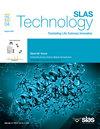生命科学背景下重大疫情网络舆情演变的三方博弈分析
IF 3.7
4区 医学
Q3 BIOCHEMICAL RESEARCH METHODS
引用次数: 0
摘要
面对突如其来的重大疫情,人们的恐慌情绪很可能导致舆论生态系统的破坏和舆论秩序的无序。因此,明确网络舆情治理的关键主体和机制,对有效管理和引导网络舆情具有重要意义。首先,在对意见领袖情绪分析的基础上,构建了政府、网民和意见领袖三方参与的进化博弈模型。分析了网络舆论传播过程中相关利益相关者之间的博弈关系。然后,通过仿真实验分析了各利益相关者策略选择的演变,并利用自然语言处理技术验证了仿真场景的有效性。研究结果表明,在重大疫情期间处理网络舆情时,政府应选择合适的时机进行干预,降低干预舆情的成本。政府惩罚力度的变化对意见领袖的影响大于网民。此外,当政府引导意见领袖时,增加对意见领袖的奖励程度比增加惩罚力度更有效。本文章由计算机程序翻译,如有差异,请以英文原文为准。
Tripartite game analysis of online public opinion evolution in major epidemics in the context of life sciences
In the face of a sudden major epidemic, people's panic may likely lead to the disruption of the public opinion ecosystem and the disorder of public opinion order. Therefore, clarifying the key main bodies and mechanisms in governing online public opinion is of crucial significance for effectively managing and guiding it. Firstly, based on the sentiment analysis of opinion leaders, an evolutionary game model involving the government, netizens, and opinion leaders was constructed. It analyzed the gaming relationships among relevant stakeholders in the process of online opinion dissemination. Then, a simulation experiment is carried out to analyze the evolution of each stakeholder's strategy choice, and the effectiveness of the simulation scenario is verified by NLP technology. The research results show that when dealing with online public opinion during a major epidemic, the government should choose an appropriate time to intervene and reduce the cost of interfering with public opinion. The change in punishment intensity by the government has a greater impact on opinion leaders than on netizens. Additionally, when the government guides opinion leaders, increasing the degree of reward for opinion leaders is more effective than increasing the intensity of punishment.
求助全文
通过发布文献求助,成功后即可免费获取论文全文。
去求助
来源期刊

SLAS Technology
Computer Science-Computer Science Applications
CiteScore
6.30
自引率
7.40%
发文量
47
审稿时长
106 days
期刊介绍:
SLAS Technology emphasizes scientific and technical advances that enable and improve life sciences research and development; drug-delivery; diagnostics; biomedical and molecular imaging; and personalized and precision medicine. This includes high-throughput and other laboratory automation technologies; micro/nanotechnologies; analytical, separation and quantitative techniques; synthetic chemistry and biology; informatics (data analysis, statistics, bio, genomic and chemoinformatics); and more.
 求助内容:
求助内容: 应助结果提醒方式:
应助结果提醒方式:


